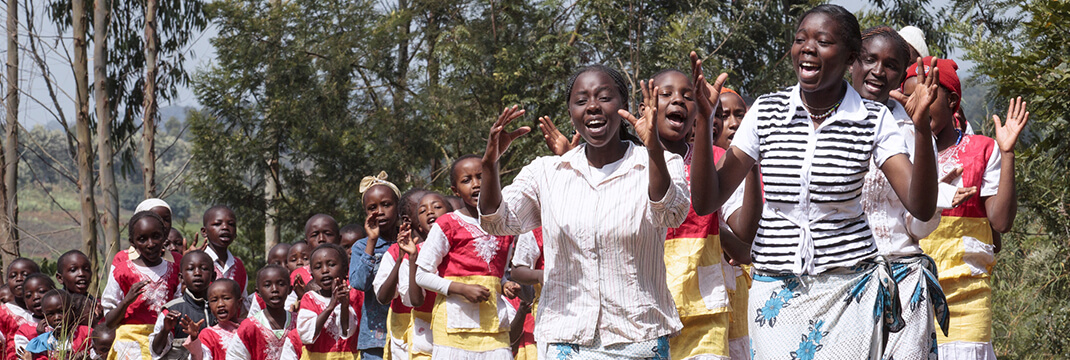
Introduction
This paper discusses an interview I had with a Kenyan family while on vacation to Africa from September to December 2012. During my time there, I was engaged in volunteer work in collaboration with VAST Kenya, a tour company that offers volunteer programs. This is the family of Mr. and Mrs. Talor, a Maasai family living in Kajiado district, in the Rift Valley province. I came to know this family while volunteering in that district. The Maasai community is among the only communities that have maintained their cultural heritage in the country. This aroused the interest to interview that family to get more information. The Talor family comprises of the two spouses and their five children: 3 boys and two girls. During the interview, I learned the family roles of the Talor family, and they are as follows:
Mr. Talor. He is the head of the house and the overall breadwinner, his day-to-day activities include herding cattle and hunting for his family. His wife, Mrs. Talor, is accustomed by culture in order to obey his orders without revolting them.
Mrs. Talor. She is a typical Maasai woman whose roles include: milking the cows, fetching water and firewood, cooking for the family, repairing their ‘Manyatta’ (house) when need be and looking after and caring for their children.
The children. In the Maasai culture, the division of the children’s family roles occurs according to gender. Therefore, their three sons: Saitoti, Lesepe and Talor Junior roles include: they learn to take care of their livestock while the girls, Lesepe and Naisianoi, learn to tend to domestic duties by their mother.
The interview was a formal face to face interaction inside their Manyatta for privacy, and the interview lasted for one hour thirty minutes.
Topic One: Family History and Family Definition
This was the first topic that I interviewed the Talor family. I asked Mr. Talor about the family history as he stands a position of heading the family. He told to me that his forefathers were nomads who had migrated from different parts of the country in search of greener pastures for their cattle. Also, they used the chance to escape from the family and clan feuds as well as population pressure.
He continued to add that his family clan is called Il–Makesen, which is one of the five main Maasai family clans. Mr. Talor also explained that his family has been the members of the Odomongi moiety, which he translated to me as the house of the red oxen. The red oxen represent the color of God that is red and evil. He further narrated an ancient Maasai myth that explained why his family belonged to the Odomongi moiety.
At the beginning of the myth, there was the creator of the earth, Naiteru-Kop, who had two wives. He gave red cattle to the first wife, while to the second wife he gave the black one. They both have lost them because of their carelessness. These stories gave a clear indication of how Mr. Talor views his family and how he defines it.
I finished this session by asking Mr. Talor about his kin, and he went on to say that in the Maasai culture the family and kin are viewed as a collective household and according to his point of view, segregating oneself from the kin is neglecting cultural values and obligations.
A sociological perspective
Looking at this information from a sociological perspective, the Talor family history and definition follow the functionalist principle (Barkan, 2011, Ch.11.2). In that, it has defined the roles of the members of his family and has given it a social identity. For instance, when he narrates the myth on his moiety, the creator, Naiteru-Kop is male. Hence this explains why men in this community have the final word. Many view women as the weaker sex, “because of their carelessness they lost the cattle”.
Topic Two: The Micro Patterns of this Family
In the second scene of the interview, I wanted to find out the micropatterns of the Talor family. This section ventured into issues of family dynamics such as marriage arrangement and the roles played by members of the Talor family within their family. I, therefore, interviewed Mr. Talor on these issues and summarized the findings below.
The interview started by asking him how he met his wife. He explained to me that in their culture they have arranged marriages in that the clan elders plan marriages without even the consent of the bride or her mother. In this case, however, girls get married off at the early age of 13, “that explains why my wife here looks younger than me; I married her when she was 15 and I was 25”, he told me. In addition, he told me that acceptance of polygamy remains a norm in his culture and that he was even considering marrying a second wife. While concluding the interview, I asked him to define his family roles as well as those of his wife and five children. Below is a breakdown of these roles.
Mr. Talor. He is the head of the house and the overall breadwinner. His day-to-day activities include herding cattle and hunting for his family. Culture accustomed his wife, Mrs. Talor, to obey his orders without revolting them.
Mrs. Talor. She is a typical Maasai woman whose roles include: milking the cows, fetching water and firewood, cooking for the family, repairing their ‘Manyatta’ (house) when need be and looking after and caring for their children.
Invite your friends and get bonus from each order they
have made!
The children. In the Maasai culture children’s family roles are divided according to gender. Therefore, their three sons’, Saitoti, Lesepe, and Talor Junior, roles include the following: they learn to take care of their livestock while the girls, Lesepe and Naisianoi, also learn to tend to domestic duties by their mother.
A Sociological Perspective
This family and culture can also be viewed from the functionalist angle. The Maasai culture has set out functions that a family should perform for society. It is evident in the Talor family roles as well as the arranged marriage. There is also symbolic ‘interactionism’ (Barkan, 2011, Ch.11.2) in that there is a way in which wives and husbands, children and parents relate and communicate with each other. Moreover, this is evident where elders arrange marriages without the bride’s knowledge, revealing that they (the elders) are dominant over the females.
Topic Three: The Macro Influences on the Family
In this section, I wanted to find out the institutional effects that society has on the family i.e. the economy, specific occupational institutions, the government and government policies, religious institutions and the media. I, therefore, continued to interview Mr. Talor on this.
He revealed that government policies and the economy do have an impact on the family. “The Talor government revolted child marriages and, therefore, I cannot risk marrying off my daughters until they have come of age since I will be in trouble with the government”, he
told me. Mr. Talor continued to add that the slowing economy is taking its toll not only on his family but also on the entire Maasai community.
A Sociological Perspective
Borrowing from the Marxist theory (Barkan, 2011, Ch.11.2), it is clear that there is a struggle between social classes. The Maasai are a marginalized community and will continue to suffer on both the family and societal levels if an equilibrium is not met.
Topic Four: Parenting Practices
This was the final section of the interview where I interviewed Mr. Talor on his parenting practices i.e. how he ensures discipline, mentors and guides his five children.
He told me that fathers in Maasai culture have a significant role in upbringing their children, especially their sons. However, he added that his main role is providing food for them, as well as ensuring he takes care of their school fees. When asked about the involvement of discipline for his children, he quoted the proverb, “Spare the rod and spoil the child”. In essence, he said that when one of his children misbehaved he or she has faced the cane. He also added that he is actively involved in mentoring and guiding his children and he is teaching them cultural and traditional practices.
A Sociological Perspective
Borrowing from the functionalist theory of sociology (Barkan, 2011, Ch.11.2), the family is seen as an institution the role of which is to pass on the family traditions and educate its children. This is what Mr. Talor does and in the process, his children will be socialized in that way and the cycle will continue.
Interview Questions
1. How would you describe your family history?
2. What defines your family?
3. How did you meet your wife?
4. What is your family’s role as the head of the family?
5. How can you describe the family roles of the rest of the family members?
6. Do the government and social institutions, such as the media and religious institutions, have an impact on your family?
7. How do you parent and discipline your children?
There were some modifications made during the interview. For instance, I had a Swahili translator present because I do not speak Swahili, hence the questions’ meaning could have been slightly distorted. However, one can learn a lot from this interview.
Struggling with your essay?
Ask professionals to help you!
Start Chat
First, I got to see the whole different family structure from what it is here in the US where children have assigned chores according to their gender. Second, some activities that would be considered masculine here are left for women, for instance, repairing the house. Third, in Maasai communities, plans and arrangement of marriages remain a culture that does not exist among American people. Fourth, the issue of early child marriages came to light which still does not exist in American culture. Fifth, the richness and uniqueness of Maasai culture and, finally, their family way of life in which kin are considered as part of the nuclear family.
The interview technique I used gave me the best results because if I had used another technique, for instance, a telephone interview, it would have failed because of communication barriers. The barriers include languages, as there must be a translator, etc. However, I missed certain connections when analyzing this interview from a sociological perspective.



